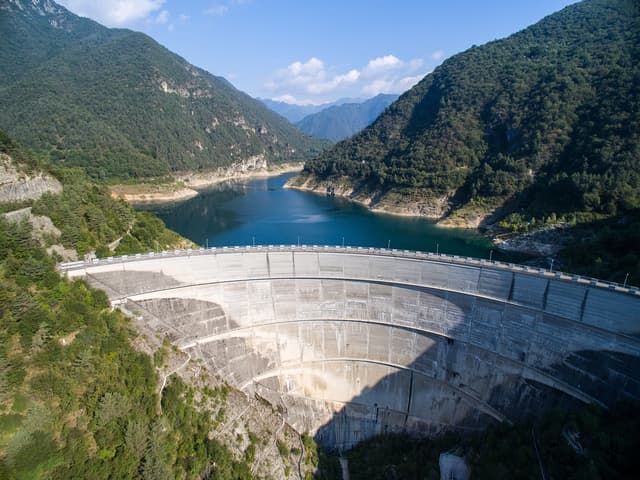Myths about teaching can hold you back
- Year 5
Renewable sources of energy
I can identify the advantages and disadvantages of renewable sources of energy, and form an opinion about their relative merits.
- Year 5
Renewable sources of energy
I can identify the advantages and disadvantages of renewable sources of energy, and form an opinion about their relative merits.
These resources were made for remote use during the pandemic, not classroom teaching.
Switch to our new teaching resources now - designed by teachers and leading subject experts, and tested in classrooms.
Lesson details
Key learning points
- Renewable sources of energy include solar, wind, wave and tidal energy, biomass, hydro-electric and geothermal energy.
- Different forms of renewable energy have advantages and disadvantages.
- Renewable energy sources can contribute to reducing carbon emissions.
- Some countries like Iceland and Costa Rica get nearly all their energy from renewable sources.
Keywords
Renewable energy - Renewable energy is sources of energy that can be re-used and will not be used up or run out.
Carbon emissions - Carbon emissions are the release of carbon into the air and atmosphere around us.
Hydro-electric - Hydro-electric power generates electricity by using water.
Biomass - Biomass is organic (natural) material that can be used as fuel.
Common misconception
Renewable energy sources are 'free'.
There are significant costs involved in setting up and maintaining renewable sources of energy.
To help you plan your year 5 geography lesson on: Renewable sources of energy, download all teaching resources for free and adapt to suit your pupils' needs...
To help you plan your year 5 geography lesson on: Renewable sources of energy, download all teaching resources for free and adapt to suit your pupils' needs.
The starter quiz will activate and check your pupils' prior knowledge, with versions available both with and without answers in PDF format.
We use learning cycles to break down learning into key concepts or ideas linked to the learning outcome. Each learning cycle features explanations with checks for understanding and practice tasks with feedback. All of this is found in our slide decks, ready for you to download and edit. The practice tasks are also available as printable worksheets and some lessons have additional materials with extra material you might need for teaching the lesson.
The assessment exit quiz will test your pupils' understanding of the key learning points.
Our video is a tool for planning, showing how other teachers might teach the lesson, offering helpful tips, modelled explanations and inspiration for your own delivery in the classroom. Plus, you can set it as homework or revision for pupils and keep their learning on track by sharing an online pupil version of this lesson.
Explore more key stage 2 geography lessons from the Energy: how do we power the world? unit, dive into the full primary geography curriculum, or learn more about lesson planning.

Licence
Prior knowledge starter quiz
6 Questions
Q1.Which of the following is not a renewable source of energy?
Q2.In 2021, what percentage of global energy used did not come from fossil fuels?
Q3.How do greenhouse gases cause Earth to become warmer?
Q4.Which gas does not contribute to global warming?
Q5.Which gas is not emitted when burning fossil fuels?
Q6.Which of the following would help to reduce climate change?
Assessment exit quiz
6 Questions
Q1.Which photograph shows hydro-electric power?



Q2.What does a wind turbine do?
Q3.What renewable energy source is burned to create electricity?
Q4.Which of the following is a con of wind power?
Q5.Which environment would be good for producing solar power?





